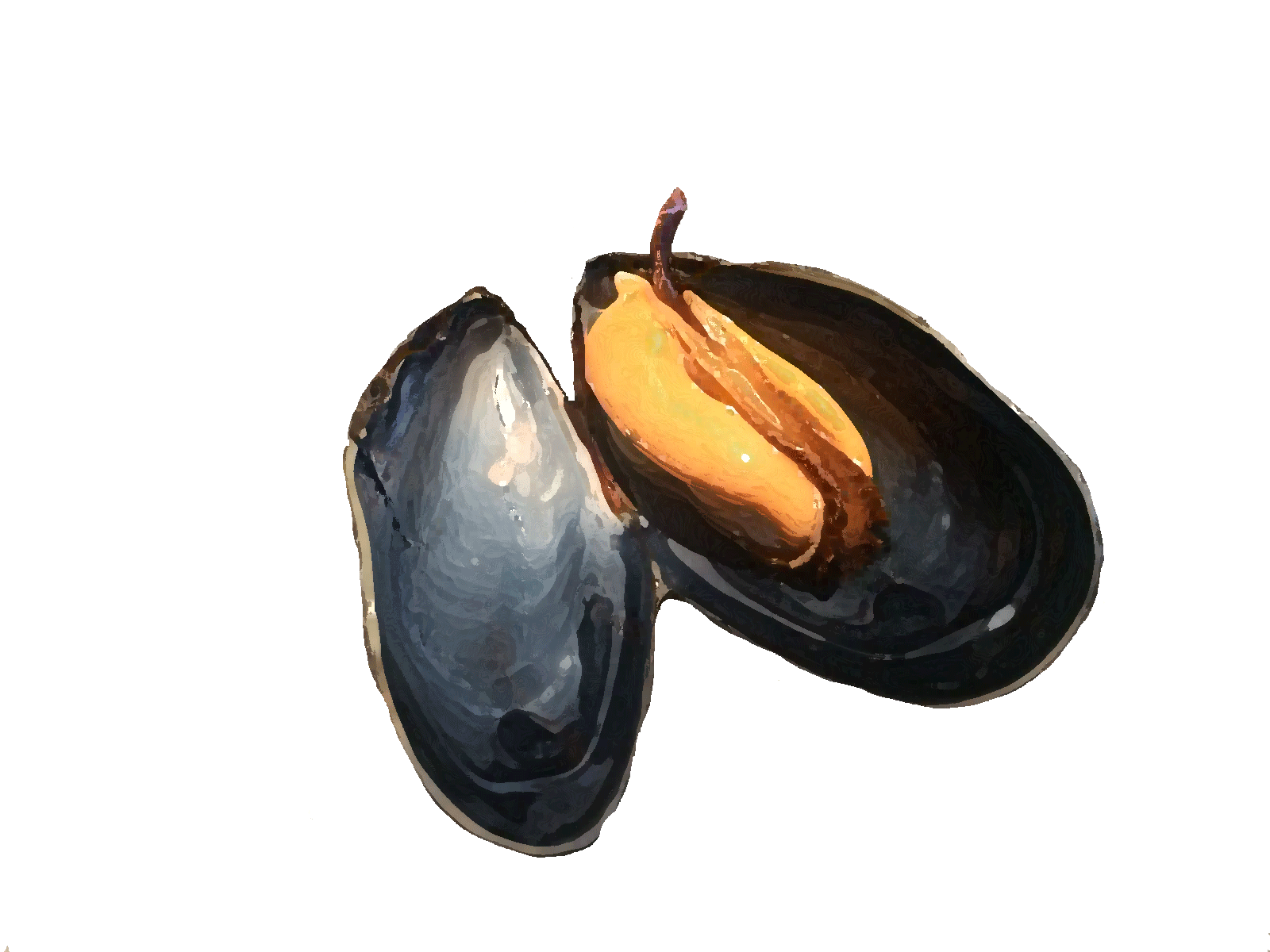
Research on the biology and culture of shellfish
News about ongoing investigations
The physiological processes involved in the growth process of mussels are explained by the energy balance equation in which growth is the difference between the energy absorbed (absorption) and the energy used (metabolic rate). Feeding behavior of mussels is influenced by the variation in quantity and quality of the food (plankton, organic matter and minerals) available. Mussels are filter-feeders that filter the surrounding water and select food for ingestion. The eco-physiological processes of food uptake…
The research presented here examined how mussels behave in different seasons and how their interactions with each other are affected by changes in the natural environment. Why is it that a mussel responds differently when environmental conditions are different. Is that an effect of food, of temperature or of food quality? Mussels live in groups, are site-specific and their behavior, growth and survival is influenced by the environment, such as how much food is available,…
Knowledge base
Mussel farming typically begins with the collection of mussel seed, traditionally obtained by fishing mussel beds on the seafloor. In response to environmental concerns surrounding this practice, an agreement was reached in the Netherlands in 2009 between mussel farmers, nature organizations and the government to phase out bottom fishing. This resulted in the introduction of the mussel seed collector (MZI), a sustainable alternative that captures mussel seed from the water column and gradually replaces traditional…
The physiological processes involved in the growth process of mussels are explained by the energy balance equation where growth is the difference between energy absorbed (absorption) and energy used (metabolic rate). Feeding behavior of mussels is influenced by the variation in quantity and quality of the food (plankton, organic matter and minerals) available. Mussels are filter-feeders that filter the surrounding water and select food for ingestion. The eco-physiological processes of food uptake (Figure 1) can…
The research presented here examined how mussels behave in different seasons and how their interactions with each other are affected by changes in the natural environment. Why is it that a mussel responds differently when environmental conditions are different. Is that an effect of food, of temperature or of food quality? Mussels live in groups, are site-specific and their behavior, growth and survival is influenced by the environment, such as how much food is available,…
Shellfish filter the water column to get food. Several factors in the water, such as temperature, salinity, suspended solids and food availability, affect the uptake of particles from the water and thus the growth and condition of shellfish. These factors can vary greatly in an estuary or bay. Measurements in breeding plots in the Wadden Sea show significant differences in growth rates in mussels, as shown in Figure 1b. A study was conducted to better…
Stability of mussel beds: A new approach to threshold determination for runoff and a risk assessment
Determining the critical threshold for runoff (CDT), such as by flow, helps identify vulnerable areas to make management decisions. CTD can vary considerably. In mussel plots, some individuals or groups of mussels may be less sensitive to disturbances because of their adaptation to the environment. Moreover, differences in composition and topography of the soil and how mussels organize on it can lead to large local differences in sensitivity to disturbance. This means that the CDT…
Mussel farming depends on the availability of young mussels, or mussel seed. Originally, all mussel seed was collected from natural mussel seed banks and then transferred to specially designated plots for further growth into consumption mussels. From the beginning of the 21st century, experiments have been conducted with floating installations in the water, called Mussel Seed Capture Systems (MZIs), to capture mussel seed. In 2009, agreements were reached between the government, the mussel industry and…

